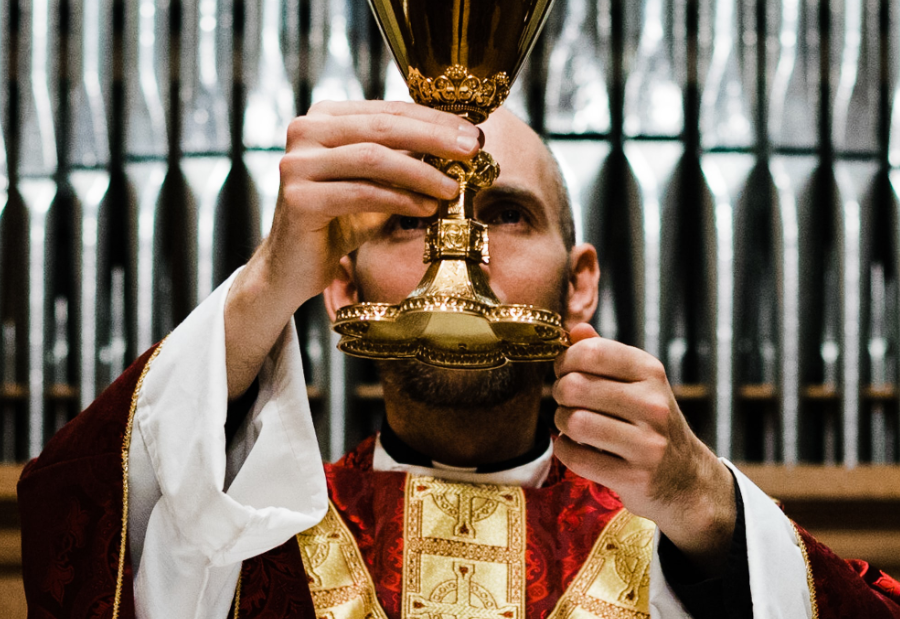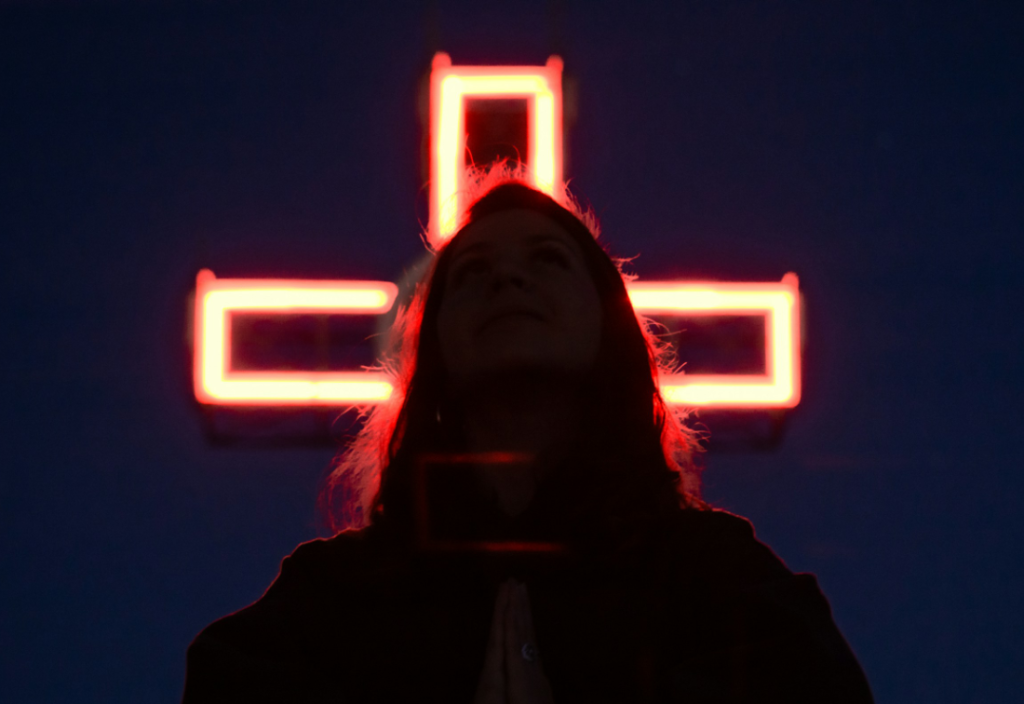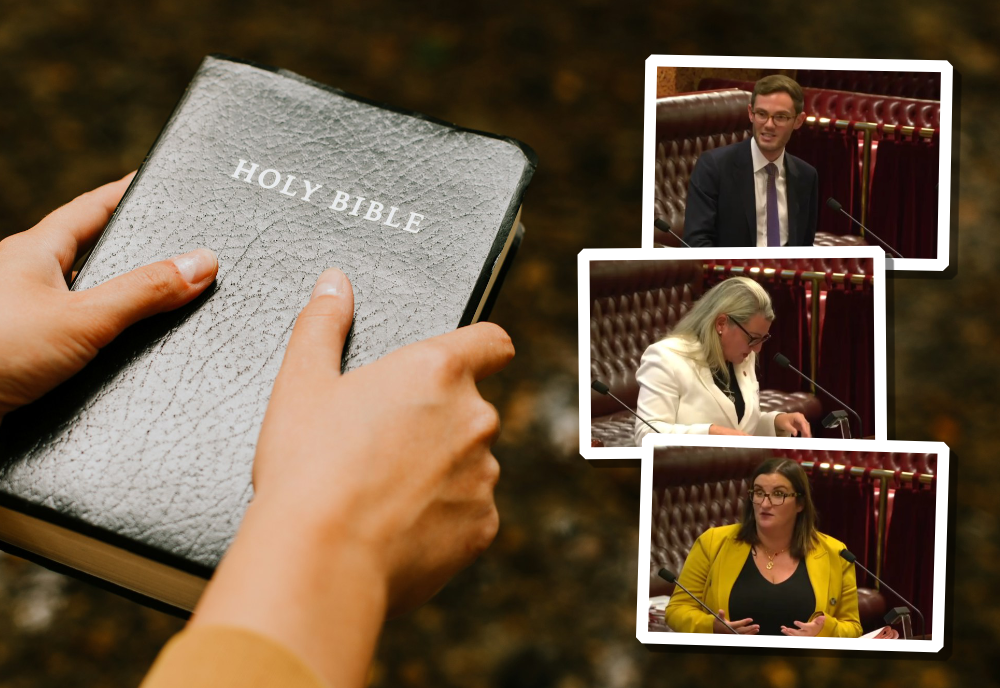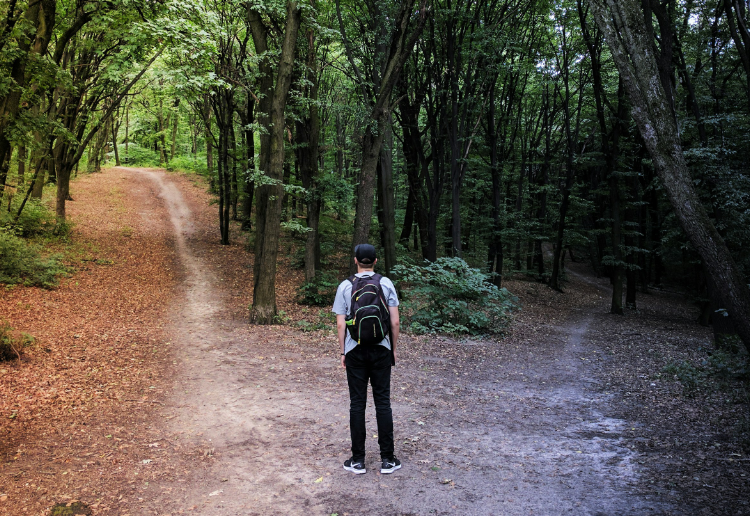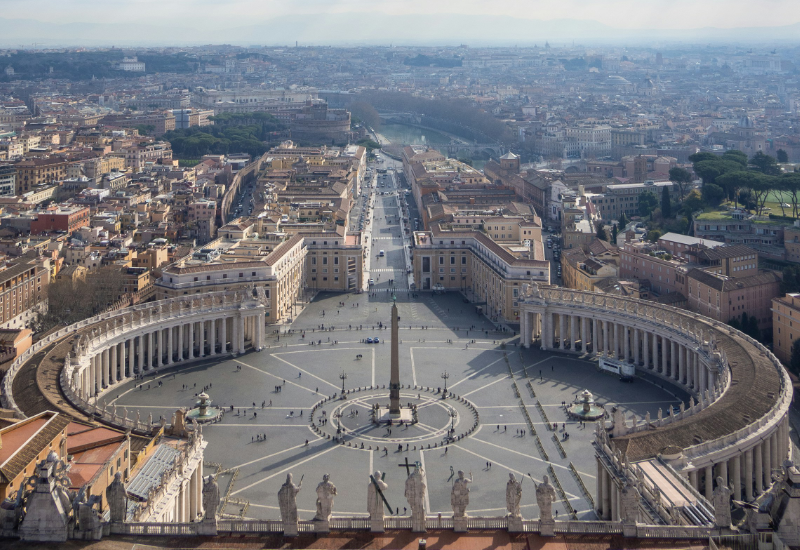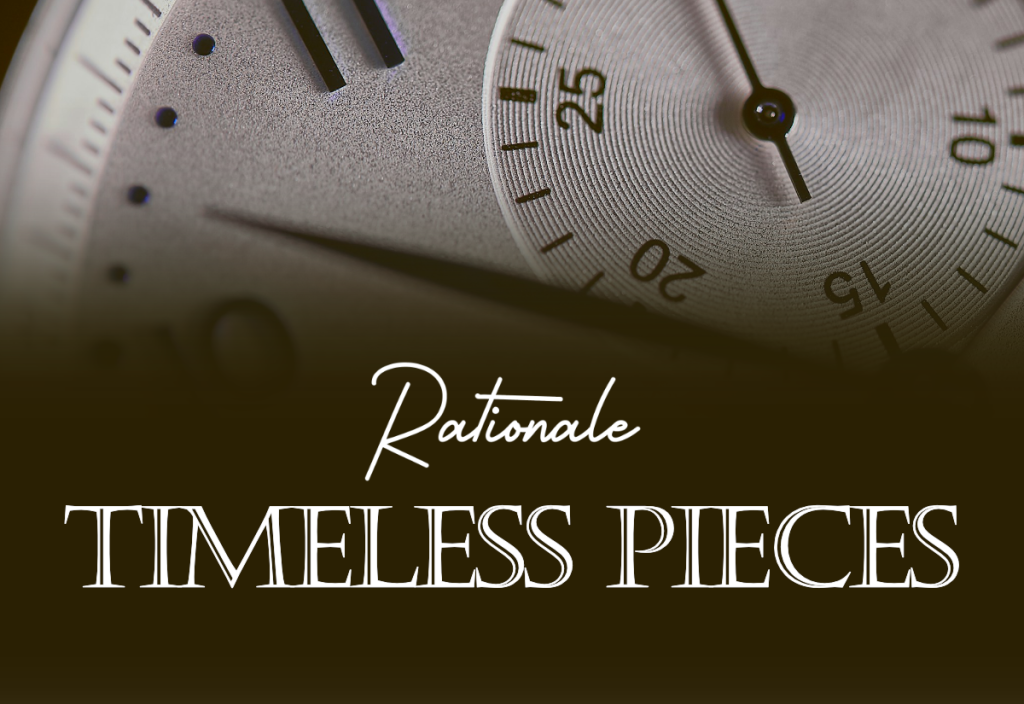I was about six years old when the parish priest walked into the room. His vestments swirled around him as we all rose in deference to this holiest-of-holy messenger of God.
The air wafted over and around us as he passed by, and he settled in the middle of the front of the class. He was a giant in black robes towering over us all, and his large golden crucifix hanging from around his white dog-collared neck added to the drama of this holy happening. His eyes scanned the room, and we were fixed in our seats in nervous anticipation.
My teacher, Sister Mary, explained that Father Pat was here to talk about heaven and hell and how we could be good people, how we could win over God’s favour via good deeds and how the sacraments of confession and communion would ensure we could enter the gates of heaven one day.
I felt scared, and my fear continued to grow as he began his talk in his Irish brogue. “Sure, isn’t it true that the good Lord has given us free will? D’ya know what that means?” He answered his own question, and we just sat in awe as he expounded on how it was our job to do this and to think that.
I was told what to believe as decreed by the priests and nuns as I continued my indoctrination in the absolutes of the dogma of the Catholic version of Christianity. I was a sinner, and it was God who would forgive my sins and deliver me from all that was bad and evil.
The priest continued in earnest. He had with him a sheet of blotting paper and a fountain pen. He emptied a small amount of ink onto the sheet from the ink pen. The ink slowly spread outwards from its epicentre, and his godliness declared, “This is your soul when ye are born. It is already stained by original sin. When ye are baptised, your sin is forgiven. Such is the power of God!”
He made the sign of the cross and looked heavenward. He then pointed to the right side of the room, our left, as a representation of heaven where good people, who think and act in accordance with the word of God, go. To his left was hell, where we would go if we didn’t repent our sins. A place of eternal fire and damnation awaited those of us who were sinners, those who blasphemed and swore, who told lies and had bad unhealthy thoughts and imaginings.
He proceeded to empty a larger amount of ink onto the blotting paper. The stain radiated from where it was placed on the white paper. When it stopped, the priest declared that a significant sin would have been made to make such a blemish on our soul. He motioned towards ‘hell’ and stopped. He said, “This is a venial sin. Your soul still has divine grace, but it is dirty and needs cleaning! God forgives us all!” Things would be fine if we repent our sins and pay the appropriate penance. So off to confession we could go, and all would be okay again.
The priest became animated and his voice shriller, as he emptied the entire contents of the pen onto the blotting paper. He walked to the left of the room, and as the ink stain spread towards the edges of the paper he got closer to ‘hell.’ “This is your soul when ye commit a mortal sin. Sure, this is when God is most unhappy with ye. Ye are in grave danger of not going to heaven!”
A place of eternal fire and damnation awaited those of us who were sinners, those who blasphemed and swore, who told lies and had bad unhealthy thoughts and imaginings.
By way of illustration of the concept of sin and its consequences, Father Pat had hit the nail on the head. The class of six-year-olds sat in silent terror as Sister Mary thanked the priest and invited us all to pay close attention to what the ‘good’ father had said to us. “Remember that God is watching you. He is everywhere!” she reminded us as the priest left the room as dramatically as he had entered. Whoosh! And he was gone.
That 20-minute session, above all others at junior school, had impacted me in ways I would never imagine, consciously or unconsciously.
The teaching of dogma, a set of principles laid down by an authority as incontrovertibly true, leaves an impressionable young person constrained and controlled by these ‘absolute truths’ that govern our very existence. What were these truths that could not be questioned? How could these impact on one’s mental health and wellbeing?
In a video on Youtube, comedian Dave Allen talks about his experiences as a child – which will resonate with many reading this.
In my experience, what I learnt and accepted as true were: firstly, the idea that we are born to serve and adore an omnipotent being who made us in his image and lives in heaven; secondly, that He is aware of our every action and thought, and that heavenly privileges can be withdrawn when we sinfully transgress the rules of the dogma laid down; and, thirdly, that we must love our neighbour as ourselves, and that should we ever covet our neighbours’ possessions, material and otherwise in thought or in deed this would constitute a sin that would invite the wrath of the vengeful God.
I did unto others until I resented them with a passion. I learnt to seek the approval of all and sundry because, in pleasing others, I was pleasing God. I would expect others to do likewise for me and felt angry when they didn’t. And why should they?
I had surrendered my own identity, and placed others’ wellbeing above my own and my mental health suffered.
I learnt to be judgemental. People should/ought/must think and act as I do according to my rules. Again, why should they?
The propaganda had worked, and I was in the thrall of the dogma that I had inherited. My absolute beliefs were rusted onto my subconscious, and I had all the answers! So I thought.
Fortunately, I happened upon the work of the stoic philosopher Epictetus and other Stoics. I read Bertrand Russell, Christopher Hitchens and Albert Ellis. And they were all singing from the same hymn sheet – pun intended.
They all agreed an opinion is just that and doesn’t constitute fact. As Bertrand Russell said, “The fact that an opinion has been widely held is no evidence whatever that it is not utterly absurd.” My rational brain was woken from its torpor.
A person’s worth, I learnt, is not tethered to how others think of them. Nor is it tethered to their successes or failures. I discovered that thinking in ‘absolutes’ had stopped me from considering other philosophical views.
I moved from the fixed inflexible thinking of the governed and subservient; from an absolutist to a free thinker. I began to question what I had been told to be irrefutable; I had started to develop independence of thought; to think for myself.
In Rational Emotive Behaviour Therapy (REBT) terms, I had shifted from believing that I must always be perfect and achieve my goals, that people I like must like me and that the world should always give me what I want. I learnt that, as Albert Ellis said, “The universe doesn’t care about you (me); it’s not for or against you (me); it just doesn’t give a shit.”
I learnt to accept that I would sometimes – perhaps often – not hit the mark, but that the sun would still rise in the morning. I understood that everyone may not see me as I would like them to regard me, but I chose to prefer this was the case and not demand that it be so.
I learnt that the world doesn’t consider my personal needs and sensibilities, and it is how I responded to events that matters. So I learnt to prefer things to go well but didn’t expect that they always should, but I would still try.
This is a continuing journey and I subscribe to the philosophy of Albert Ellis who said: “The best years of your life are the ones in which you decide your problems are your own. You do not blame them on your mother, the ecology, or the president. You realise that you control your own destiny.”
If you wish to republish this original article, please attribute to Rationale. Click here to find out more about republishing under Creative Commons.
Photo by Shannon Douglas on Unsplash.

